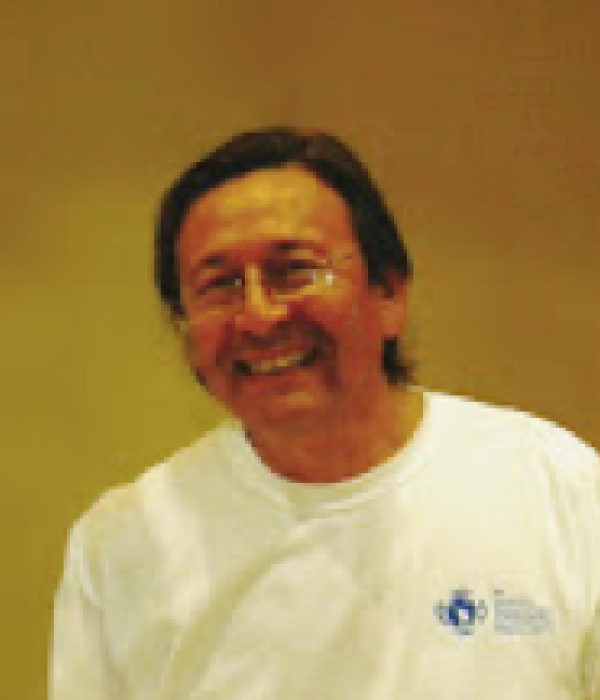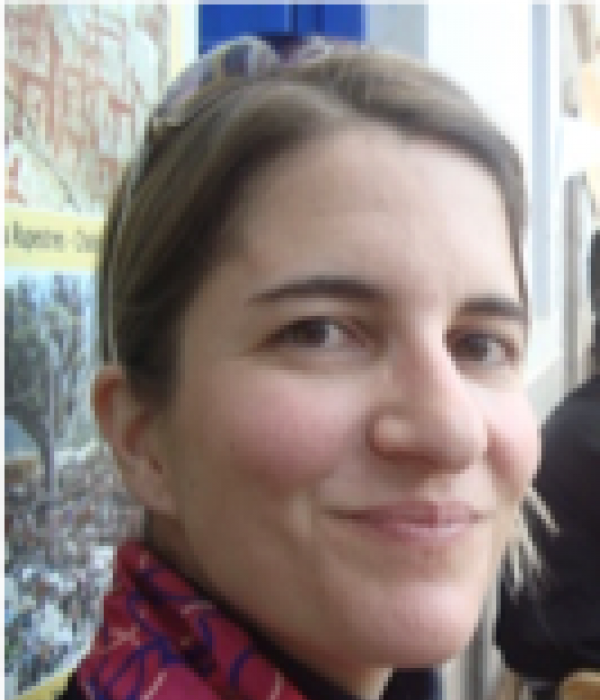Where & When
The video link will be to an easy to use website called Zoom. In this webinar format, you will see the teachers and host, but you will not be seen. You will be able to ask questions during the webinar by typing them.
You will need to have a computer/mobile device. Calling in by phone is also possible but not preferred.
Three sessions on Fridays:
August 9, August 16, and August 23, 2019
3:00-5:00 pm Eastern Time
Tres sesiones, viernes
9 de agosto, 16 de agosto y 23 de agosto de 2019
3: 00-5: 00 pm hora del Este
Times worldwide: Click this link for your time.
Registration closes Friday, August 9th at 12:00 pm
Horario mundial: Haga clic aqui para el horario suyo.
Inscripciones se permiten hasta el viernes 9 de agosto a las 12:00 pm
Detailed information about each session
First Session: Emergence of experiential theory and the experiential revolution in Psychotherapy
The purpose of this first class is to make known the way in which the theory of experiencing arises. With the appearance of the book Experiencing and the Creation of Meaning in 1962, Eugene Gendlin inaugurated the experiential era in Psychotherapy, a real revolution in psychotherapy. Edgardo hopes to clarify how the Experiential theory evolved until the appearance of Focusing in 1980. We will explore the discoveries of Gendlin between 1962 and 1980 from the world of Psychotherapy.
Primera sesión: Surgimiento de la teoría experiencial y la revolucion experiencial en la Psicoterapia
El propósito de esta primera clase es dar a conocer el modo en que surge la teoría del experienciar. Con la aparición del libro ECM en 1962, Eugene Gendlin inaugura la ERA experiencial en Psicoterapia. Se produce una verdadera revolución en psicoterapia. Espero clarificar en esta primera clase cómo evolocionó la teoria Experiencial hasta la aparición del Focuisng en 1980. Veremos los descubrimientos de Gendlin entre 1962 y 1980 desde el mundo de la Psicoterapia.
Second session: What is Focusing and why does it work?
In the second class, we will stop to see why Focusing works, to see it as an experiential and holistic phenomenon, and to highlight the key moments of Focusing: the formation of the handle, the body shift, and the panoramic view, as resources to ensure the change. Our intention is that we can see the way Focusing operates from a pre-conceptual symbolization, from an experiential trace, and explain the wonderful link between felt sense and empathy.
Segunda sesión: ¿Qué es el Focusing y por qué funciona?
En esta segunda clase, nos detendremos a visualizar por qué funciona el Focusing, verlo como un fenemeno experiencial y holisitico y destacar los momentos principales y claves del Focusing: la formación del asidero, el cambio corporal y la vision panorámica como reursos para asegurar el cambio. Nuestra intension es que podamos ver el modo en que opera el Focusing desde una simbolización pre-conceptual, desde una huella experiencial y explicar el maravilloso enlace entre sensación sentida y empatía.
Third session: Future of Focusing: the change in implicit interaction.
In our third class, we will explore the central phenomenon of Focusing and the Philosophy of the Implicit: the felt sense and carrying forward of the new, and how Focusing produces the miracle of novelty. The full understanding of the felt sense will allow us to see a radiant future of the presence of Focusing in the future of humanity. A change in the INTERACTION is the proposal.
Tercera sesión: Futuro del Focusing: el cambio en interacción Implícita.
En nuestra última clase veremos el fenómeno central del Focusing y de la Filosofía de lo Implicito: la felt sense y la autopropulsion de lo nuevo, cómo es que el Focusing produce el milagro de la novedad. La comprensión cabal de la felt sense nos permitirá ver un futuro radiante de la presencia del focusing en el futuro de la humanidad. Un cambio en la INTERACCION es la propuesta.
About Your Hosts
Edgardo Riveros Aedo, Experiential Psychotherapist, translated Eugene Gendlin's Theory of Change of Personality (1973) into Spanish at the University of Chile. Published books: The experiencing A new paradigm (2000), Focusing experiential and existential (2005), Focusing a new paradigm for the 21st century (2008), Focusing from the Heart and towards the Heart (2015). He has translated the two central philosophical works of Gendlin: The experience and the creation of meaning (ECM) (2016) and A Process Model (2009 1st edition and 2019 in 2nd edition). He is dedicated to Psychotherapy in his private practice and teaches focusing as Coordinator of Focusing for Chile (2000), named by Eugene Gendlin. He founded the Continental Focusing School in Spanish based in Santiago de Chile in a blended training system for all Spanish-speaking countries. www.e.c.f.e.cl and www.focusingchile.cl
Currently, Edgardo is a member of the teaching team of the Weeklong (2017, 2019, 2020) where he has shown the experiential and philosophical dimension of Focusing as an attitude and a phenomenon of change.
Biografía
Edgardo Riveros Aedo, Psicoterapeuta experiencial, Psicólogo y Master en Humanidades, ha traducido al español la Teoría del Cambio de Personalidad de Eugene Gendlin (1973) en la Universidad de Chile. Libros publicados: El experiencing Un nuevo Paradigma (2000), Focusing experiencial y existencial (2005), Focusing un nuevo paradigma para el siglo XXI (2008), Focusing desde el Corazón y hacia el Corazón (2015). Ha traducido las dos obras filosóficas centrales de Gendlin: El experienciar y la creación del significado (ECM) (2016) y Un Modelo Procesal (2009 1ª edición y 2019 en 2ª edición). Se dedica a la Psicoterapia en su practica privada y enseña focusing como Coordinador de Focusing para Chile (2000), nombrado por Eugene Gendlin. Ha fundado la Escuela Continental de Focusing en Español con sede en Santiago de Chile en un sistema de entrenamiento semipresencial a todos los países de habla hispana, www.e.c.f.e.cl ; www.focusingchile.cl
Actualmente, Edgardo como miembro del Equipo docente del Weeklong (2017,2019,2020) ha mostrado la dimensión experiencial y filosófica del Focusing como una actitud y un fenómeno de cambio profundo.
Victoria Stanham has a B.A. in Theatre Arts (Washintong & Lee University, USA), is a registered Teacher of the Alexander Technique (S.T.A.T.) an approved D.N.S Trainer (Dynamic Neuromuscular Stabilization – Prague School of Rehabilitation) and has been working as a posture and movement reeducator for the past 10 years. She is also an English Language teacher and periodically works as an English-Spanish translator and interpreter.
Victoria trained in Focusing with Edgardo Riveros Aedo, graduating as a Focusing Trainer at the 2019 Weeklong in Punta de Tralca, Chile. She is a current member of TIFI’s Programs Committee and, together with her partner Eduardo Gómez Haedo, is committed to spreading Focusing and Eugene Gendlin’s work in Uruguay.
Victoria Stanham, Licenciada en Artes Escénicas (Washington & Lee University, EE.UU.), Profesora de Técnica Alexander (S.T.A.T.) y Entrenadora en D.N.S. (Estabilización Neuromuscular Dinámica – Prague School of Rehabilitation), trabaja en re-educación postural y del movimiento desde hace 10 años. Paralelamente imparte clases de lengua inglesa, realiza traducciones escritas y oficia de intérprete español-inglés.
Se forma en Focusing con Edgardo Riveros Aedo, graduándose como Focusing Trainer en el Weeklong 2019 en Punta de Tralca, Chile.
Actualmente Victoria integra el Comité de Programas de TIFI, y junto con su pareja Eduardo Gómez Haedo está avocada a difundir el Focusing y la obra de Eugene Gendlin en Uruguay.
Registration Information and Price
Choose the price based on your country's economy and your personal circumstances.
Elige el precio según la economía de tu país y tus circunstancias personales.
$ 40.00
-
$ 75.00
-
$ 100.00
-
Participants do NOT need to attend the live classes. Each recording will be distributed to all registrants prior to the next session (except in the case of technical difficulties).
Los participantes NO necesitan asistir a las clases en vivo. El registro grabado de cada clase se enviará a todos los participantes inscriptos al curso antes de la siguiente sesión (excepto en el caso de dificultades técnicas).
For more information:
Contact Elizabeth at [email protected] or (845) 480-5111.
Por más información:
Póngase en contacto con Elizabeth a través de [email protected] o (845) 480-5111.


